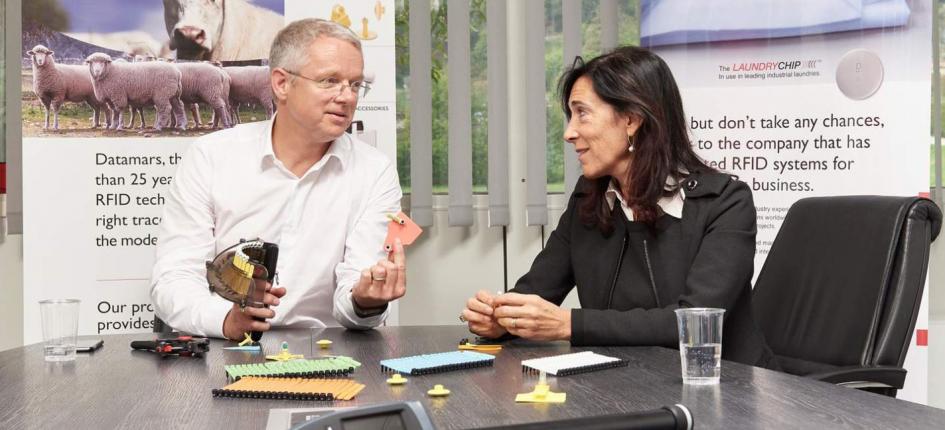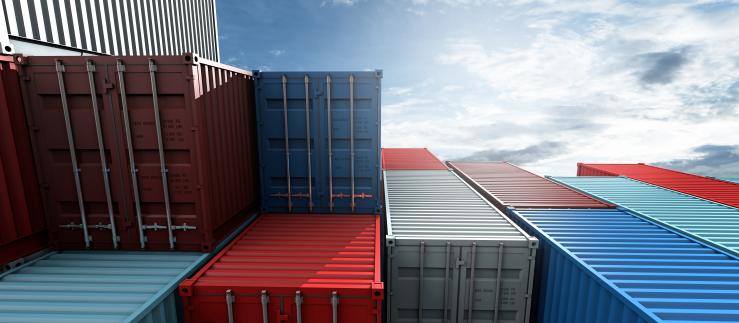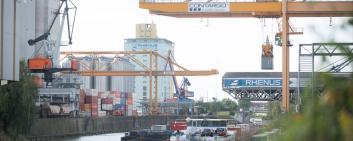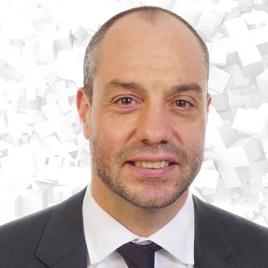The business relationship between Datamars and Credit Suisse goes back 30 years. That relationship was severely tested roughly ten years ago even though Datamars was already the undisputed global leader in tracking pets and textiles. What happened, Mr. Ackerstaff?
Klaus Ackerstaff (KA): You're referring to the 2006 patent infringement case in the United States. I had just started working for Datamars. We were technically bankrupt because of the astronomical legal fees we had to pay in the US. Although Credit Suisse might easily have severed its ties with us, it instead provided strong support.
In what way?
KA: It helped us keep our day-to-day business afloat. If the bank hadn't allowed for flexibility in our current account, we would have had trouble paying our employees on more than one occasion...
Ms. Fini Di Pietro, you were already working as a client advisor for Credit Suisse, and Datamars was one of your clients. What was that period like for you?
Sura Fini Di Pietro (SF): I started working as a client advisor for Credit Suisse 17 years ago, and Datamars was one of my clients from the beginning. So I was already familiar with the company. After an American firm filed suit, we sat down with Datamars to analyze the situation. It was clear that business was going very well, the company's products had good prospects, and Datamars had a good management team in place as well as ideas for the future – so it clearly made sense for us to offer our support and the necessary liquidity. The company's leaders were working very hard to find a solution.
What was that solution, and how did Datamars ultimately manage to get back into the black?
KA: We had to introduce a variety of measures. If we were to survive, the first thing we needed was capital. That was provided by an external Swiss investor. Then we found new shareholders and reorganized the company.
SF: I've been impressed by the company's transformation over the past few years. When I started at Credit Suisse, Datamars was a fairly small company and didn't have a particularly close relationship with the bank. As the company grew, so did that relationship. Today, Datamars has ten times as many employees as it did then, as well as locations on every continent. While working as client advisor with Datamars, I have continued to learn new things in a variety of areas; that was also unusual for me.
Which sort of areas? What have you learned from the company?
SF: First of all, it made me aware of RFID products and a market I hadn't previously known anything about. But I also gained new insight into the bank, since Datamars needed some very specialized services that Credit Suisse in Ticino doesn't offer every day. That has usually meant extensive financing arrangements. Over the past decade, Datamars has completed ten acquisitions, first small companies and then larger and larger enterprises. These transactions are too complex for me to handle without help. That's when our specialists in Zurich – Structured Finance, for example – step in. The volume of the most recent transaction was so large that even Credit Suisse couldn't finance it alone. We suggested a syndicated loan, which involves several lending institutions. But we were the lead bank.
KA: It's not that Credit Suisse lacked the capital to issue such a loan; it's that the risk concentration would have been too great. That's why the bank proposed a syndicated loan. And for Datamars, it involved more than just the loan. The company underwent restructuring again, with new shareholders. Our previous shareholders were smaller and might not have been able to handle a major acquisition. We needed a stronger shareholder that could stay with us over the long term. And we found one: a Canadian pension fund. At the same time, many of our old investors took a stake. As part of this solution, we decided to accept a certain level of indebtedness – in partnership with Credit Suisse.
SF: In other words, Datamars is ready and prepared for a course of continued, more comprehensive growth.
Are there already specific plans for this growth?
KA: Our contract with Credit Suisse includes future acquisitions. Our next takeover will probably be much larger than those in the past. And we want to be prepared, because we may have to move quickly. After consulting with a number of banks, we decided to stay with Credit Suisse; our management is pleased with the bank, and it made us a good offer. If an acquisition happens tomorrow, we'll have the money on our desk the day after. (glances at Sura Fini Di Pietro and laughs.)
SF: (laughs and then turns serious.) That's more or less right. The conditions are fixed. Once again this is a rather unconventional solution and typical of Datamars. When the next acquisition happens, we won't be starting from scratch. The conditions and everything else necessary are in place to begin the process when the time comes. I'm very excited to see what the future has in store.
KA: With annual sales increasing by 25 percent and profits by 30 percent, we are obviously in a comfortable negotiating position. But we all know that times change, and when they do, the durability of a banking relationship becomes apparent. Credit Suisse has already demonstrated that it is there for us.
About Datamars SA
Founded in 1988, Datamars SA specializes in the identification of livestock, pets and textiles. The company is a global market leader in RFID technology. Under CEO Klaus Ackerstaff, the company employs around 70 people at its headquarters in the town of Bedano in the Ticino region. There are around 1,000 employees worldwide. Around half of those work at the production facility in Thailand where the electronic components are manufactured.







